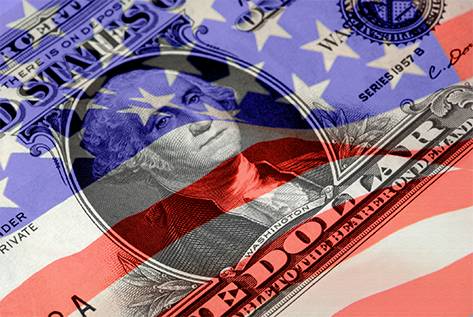The Japanese yen declined in the Asian market on Thursday against a basket of major and minor currencies, resuming losses that had paused temporarily yesterday against the U.S. dollar, on its way again toward the lowest level in five weeks, due to the growing concerns currently about the political situation in Japan, the world’s fourth largest economy.
Less aggressive comments from a member of the Bank of Japan led to further weakness in the chances of raising Japanese interest rates before the end of this year, while awaiting more solid evidence regarding the path of monetary policy normalization in Japan.
Price Overview
•The exchange rate of the Japanese yen today: the dollar rose against the yen by about 0.2% to (148.27¥), from the opening price today at (148.03¥), and recorded the lowest level at (147.79¥).
•The yen ended Wednesday’s trading up by 0.2% against the dollar, in its first gain in the last four days, within a recovery move after earlier hitting the lowest level in five weeks at 149.14 yen, due to the acceleration of open selling operations.
•Apart from buying from low levels, the yen rebounded after weak data on job openings in the United States, which strongly boosted expectations of a U.S. interest rate cut in September.
Political Situation in Japan
The secretary-general of the ruling party in Japan, Hiroshi Moriyama, one of Prime Minister Shigeru Ishiba’s closest allies, announced his intention to resign from his post, a move that could deepen the crisis within the party and cast a shadow over Ishiba’s political future.
This development comes after mounting pressure on the prime minister following the recent election loss, as calls for his resignation have escalated, though he has so far stuck to his position and refused to step down.
Observers believe that Moriyama’s departure may weaken Ishiba’s internal base and increase the chances of him being subjected to more political pressure in the coming period.
These developments open the door for Sanae Takaichi as one of the leading candidates to succeed Ishiba, as she is known for her economic views supporting the policy of keeping domestic interest rates low, which reinforces expectations of a more accommodative direction in Japanese monetary policy if she assumes office.
Opinions and Analysis
•Kit Juckes, chief FX strategist at Société Générale, said: “On the surface, political uncertainty, and the possibility of Prime Minister Shigeru Ishiba resigning in the coming days or weeks, negatively affects the yen.”
•Lee Hardman, senior currency analyst at MUFG, said: “The aggravation of political uncertainty is likely to remain a barrier, while the absence of a hawkish signal from Deputy Governor Ryuzo Himino on Tuesday will encourage speculators to continue rebuilding short yen positions.”
Japanese Interest Rate
•Ryuzo Himino, Deputy Governor of the Bank of Japan, affirmed that the central bank “should continue raising interest rates,” but at the same time stressed that the uncertainty facing the global economy remains high, which means there is no urgency to increase currently low borrowing costs.
•Nakagawa, a member of the Bank of Japan, warned of the risks of trade policy and is looking to the Tankan report for guidance on the path of monetary policy normalization in the country.
•Pricing for the probability of the Bank of Japan raising interest rates by a quarter of a percentage point at the September meeting is currently stable below 30%.
In order to reprice those probabilities, investors await the release of more data on inflation, unemployment, and wages in Japan, in addition to monitoring comments from some Bank of Japan members.


